
Czechoslovak politician and eighth president of Czechoslovakia. He is called Normalisation president.

The most important independent civil protest initiative in Czechoslovakia after 1968. It was created on the basis of the so-called Helsinki Final Act on human rights from 1975. Charter 77 became a symbol of moral resistance against the communist regime.

The beginning of the legendary speech by Klement Gottwald, Chairman of the Communist Party and Prime Minister of the Czechoslovak Republic, in which he informed about the political twist that made it possible for the Communist Party of Czechoslovakia to seize absolute power in the country.

Czechoslovak volunteers who fought in the Spanish Civil War (1936–1939) on the side of the Republican government. Many of them later played a significant role in Czech history. Apart from that, a significant quantity of Czechoslovak weapons was used in Spain.

A religious order that came to the Czech lands in the 16th century. It developed a very advanced pedagogic practice in education. However, due to its connections with the Habsburg royal family, it is regarded as controversial in the Czech society.
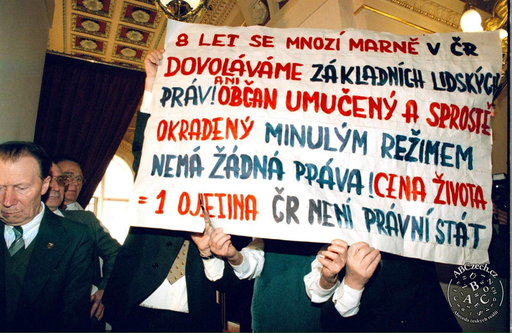
Organisation of political prisoners incarcerated by the communist regime in Czechoslovakia from 1948 to the early 1960s.

Czech philosopher who dealt with the topics of environmental protection. He spent most of his life in the USA, where he studied the questions of the relationship between man and world, the development of phenomenology and the problem of ethics.

Prominent Czech philosopher, sociologist and historian. Representative of Czechoslovak humanistic Marxism, in the 1960s the most internationally famous Czech philosopher. His publication The Dialectics of the Concrete (Dialektika konkrétního, 1963) made him an internationally recognised thinker.
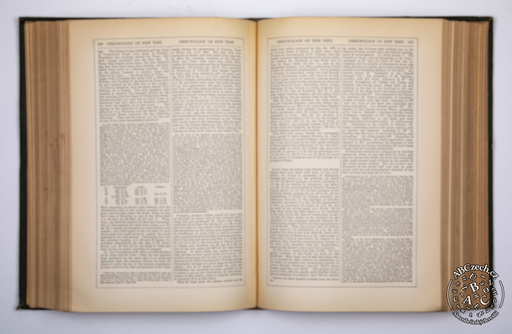
Army general of the 1st Czechoslovak Armoured Brigade, the only land army unit consisting of Czechoslovak citizens that was active on the western front during the Second World War.

Czech philosopher, humanistic and reformist Marxist. In the 1960s, he was an internationally recognised theoretician of the philosophical dialogue between Marxists and Christians. His concept of Marxist humanism laid the foundations for an understanding between the two camps.

Czech diplomat and politician, the younger son of president T. G. Masaryk. He died under suspicious circumstances.

Sociologist, philosopher and the first president of the independent Czechoslovak Republic after 1918. He was a political icon and a symbol of moral integrity who still has an influence on the norms of democratic discussion and political rhetoric as the central figure of Czech 20th-century historical memory.

The largest armed resistance of the Czech people against the German occupation during the Second World War. It became a part of the collective memory of post-war generations of Czechs and is still commemorated on sites of memory all over the country.
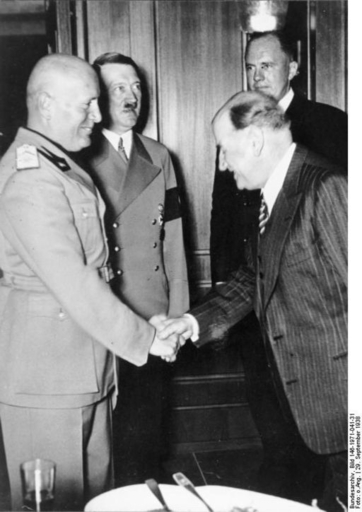
A common belief in the devastating importance of the so-called Munich Agreement signed on 30 September 1938 in Munich, Germany.

Ideological regime of Czechoslovak politics between 1969 and 1989. Its central principle was the subjection of all aspects of life in Czechoslovakia to the political line of the Soviet Union as an attempt at maintaining the stability of the Eastern Bloc.
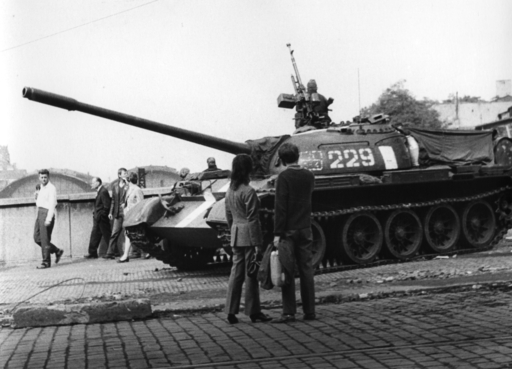
Official name for the military invasion by five socialist countries of the Warsaw Pact in Czechoslovakia in August 1968. The largest military operation carried out by the Soviet Union after the Second World War, with the purpose of suppressing democratic reforms of Prague Spring.

Student of history and political economy at the Faculty of Arts of Charles University, a symbol of citizens’ protest and a demonstrative victim. His suicide by self-immolation in January 1969 was an expression of active defiance of students and a large majority of citizens against the Soviet occupation and the subsequent political repression.
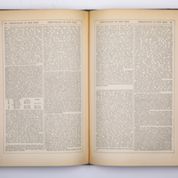
Post-war Czechoslovak communist official and politician, a reform communist during the Prague Spring. He sought political asylum in Italy with his wife in 1969. As a member of the Italian Socialist Party, he was a member of the European Parliament on two occasions.

A prominent figure of Czech media, public and literary scene of the first half of the 20th century. Essayist and journalist, editor-in-chief of the influential weekly Přítomnost. He held liberal leftist views and was close to President T. G. Masaryk’s political views.
2016-2020 ABCzech.cz - © Filozofická fakulta Univerzity Karlovy
Content from this website may be used without permission only for personal and non-commercial purposes and with the source cited. Any other use is allowed only with the authors' consent.
This web application Sonic.cgi meets GDPR requirements. Current information can be found here.